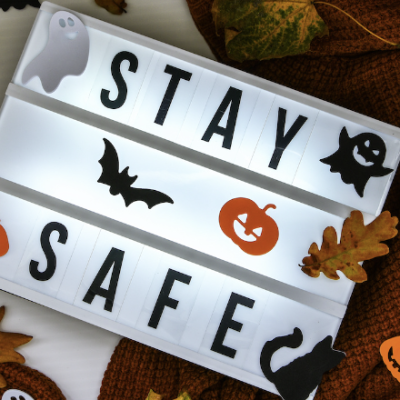Navigating Flu and Cold Season
Tuesday, November 28, 2023 Amanda Coniglio

As the seasons change and temperatures drop, the risk of catching the flu or a cold tends to rise. Understanding the common ways these viruses spread and distinguishing between a cold and the flu is crucial for maintaining good health during this time.
Common Ways to Catch the Flu and Colds:
1. Airborne Transmission: Both the flu and cold viruses can spread through tiny respiratory droplets produced when an infected person talks, coughs, or sneezes. Avoid close contact with individuals showing symptoms to reduce the risk.
2. Surface Contamination: Viruses can survive on surfaces for varying durations. Touching contaminated surfaces and then touching your face, especially the nose, eyes, or mouth, can introduce the virus into your system. Regular handwashing and sanitizing can be effective preventive measures.
3. Shared Spaces: High-traffic areas like offices, schools, and public transportation provide fertile ground for the transmission of viruses. Practicing good hygiene, such as regularly disinfecting commonly touched surfaces, can help mitigate the risk.
The Difference Between a Cold and the Flu:
While colds and the flu share some symptoms, they are caused by different viruses and have distinct characteristics.
1. Onset and Severity: The flu often has a sudden onset with more severe symptoms, including high fever, body aches, and fatigue. Colds generally have a milder start and less intense symptoms.
2. Symptoms: Both illnesses can cause a runny or stuffy nose, sneezing, and a sore throat. However, the flu is more likely to lead to complications like pneumonia, which can be serious.
3. Fever: Fever is common in the flu but less common in colds. If you experience a high fever, it may indicate the flu.
Staying Healthy Tips:
1. Boost Your Immunity:
- Ensure a balanced diet rich in fruits, vegetables, whole grains, and lean proteins.
- Incorporate immune-boosting foods like citrus fruits, garlic, ginger, and yogurt into your meals.
2. Stay Hydrated:
- Adequate hydration is crucial for maintaining overall health and supporting your body's defense mechanisms.
- Drink plenty of water, herbal teas, and broths to keep yourself well-hydrated.
3. Practice Good Hygiene:
- Wash your hands regularly with soap and water for at least 20 seconds, especially after coughing or sneezing.
- Use hand sanitizer when soap and water are not available.
4. Cough and Sneezing Etiquette:
- Cover your mouth and nose with a tissue or your elbow when you cough or sneeze.
- Dispose of used tissues properly and wash your hands immediately.
5. Adequate Rest:
- Ensure you get sufficient sleep to allow your body to recover and regenerate.
- Lack of sleep can weaken your immune system, making you more susceptible to infections.
6. Regular Exercise:
- Engage in moderate exercise to boost your immune system and improve overall well-being.
- Aim for at least 150 minutes of moderate-intensity exercise per week.
7. Vitamin Supplements:
- Consider taking vitamin supplements, especially vitamin C and D, under the guidance of a healthcare professional.
- These supplements can contribute to overall immune health.
8. Manage Stress:
- Chronic stress can compromise your immune system. Practice stress-reducing activities like meditation, deep breathing, or yoga.
- Prioritize self-care to maintain mental and emotional well-being.
9. Avoid Touching Your Face:
- Minimize touching your face, especially your eyes, nose, and mouth, to reduce the risk of transferring viruses from your hands.
10. Stay Informed:
- Keep yourself updated on flu and cold symptoms, and seek medical attention promptly if you experience any signs of illness.
- Follow public health guidelines and get vaccinated against the flu.
Remember, maintaining good health during flu and cold season is a proactive effort that involves a combination of healthy habits. By incorporating these practices into your daily routine, you can increase your chances of staying well and resilient in the face of seasonal illnesses.




